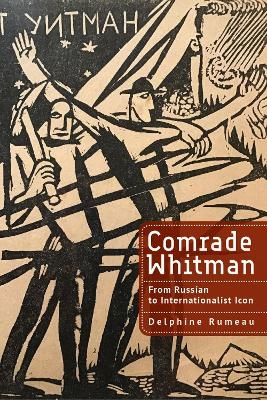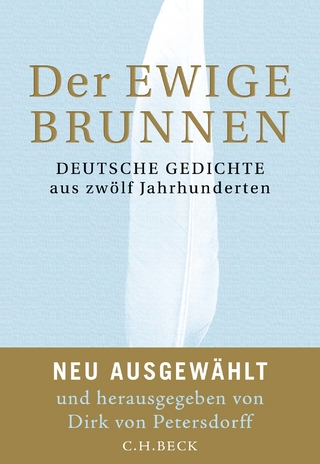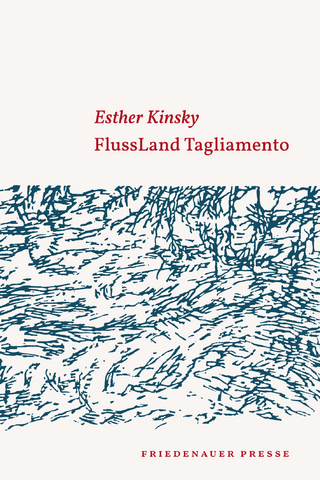
Comrade Whitman
Academic Studies Press (Verlag)
979-8-88719-460-8 (ISBN)
The reception of the American poet Walt Whitman has been a global phenomenon. It is central to the history of modern poetry, but it goes beyond literary stakes: Whitman’s proclaimed heirs often saw him as a prophet of a new world. This book focuses on the Russian and Soviet uses of the poet, showing how they contributed to his transformation into a revolutionary and communist icon, especially in the US and in Latin America. It illuminates circuitous routes of translations and interpretations between the Soviet Union, Europe and the Americas. It covers a vast linguistic scope, including Yiddish and various languages of the Russian and Soviet empires.
Delphine Rumeau is Professor of Comparative Literature at the University of Grenoble, France.
List of illustrations
Permissions
Note on transliteration, names and translations
Acknowledgements
Foreword
Introduction
Chapter 1. Whitman as a primitive (1880s–1910s)
1. A neo-wanderer
2. “Striking up for a New World”
The Adamic Whitman
The Greek Whitman
3. The barbarian
The Germanic Whitman
Against “Latin” sclerosis
4. Westward: another direction for the quest of the primitive in Russia
5. Appropriation and separation
Transatlantic barbarians: Whitman and Verhaeren
Volte-faces
Chapter 2. The Futurist poet (1910s–1920s)
1. The poetry of modern chaos
Poet of the metropolis
A rebel against hierarchy
2. A precursor of Futurism
A “propeller” of Western avant-gardes
Korney Chukovsky’s “first real Futurist”
3. Whitman and (post-) Russian Futurist poetry
Velimir Khlebnikov: from circumspection to kinship
Vladimir Mayakovsky: from anxiety of influence to anxiety of impotence
Post-imperial Whitman (the Baltic states and Ukraine)
Chapter 3. Whitman the prophet (1880s–1930s)
1. The prophet of the body
“I believe in the flesh and the appetites”: the anti-Victorian Whitman
The passion of the body (Konstantin Balmont)
Yiddish poets and the female body
2. The poet as “kosmos”
The prophet’s heart as a cosmos (Morris Rosenfeld)
Cosmic consciousness (Richard Maurice Bucke)
A “chronic mystical perception” (William James)
From the Milky Way to Russian iconostasis (Balmont and Grigoriev)
3. The seer and the guide
New American and British churches
The Russian prorok
The prophet of the Promised Land
Chapter 4. From democrat to socialist (1880s–1919)
Foreword: the impact of the British editions
1. “The institution of the dear love of comrades”
Whitman and British ethical socialism
The transatlantic socialist fellowship
Continental European Whitmanites
2. The Russian democrat
Selected poems, from Whitman and not from Whitman
The poetry of “struggle” versus the poetry of “future democracy”
3. War and peace
“An example of war poetry”
Whitman the wound-dresser
Love and reconciliation
Chapter 5. The extraordinary adventures of Walt Whitman in the land of the Bolsheviks (1918–1936)
1. A wide circulation
The 1920s: (re)-translating, (re)-publishing Whitman in Russian
The anthology of the revolution: highly selected poems
Korenizing Whitman
The 1930s: becoming a classic
2. Whitmanian agitprop
Celebrating the revolution with Whitman in 1918
The Proletkult shows: “the first experiments of poetic theatre”
The Whitman club: “to kiss, to work and to die Whitman’s way”
Whitman and Soviet film: from kino-eye to montage
Chapter 6. Between the wars: a transatlantic fellow traveler (1919–1938)
1. In Europe: the relative decline of the socialist Whitman
The 1919 celebrations
Foiled European revolutions
In the press: the Comintern of translators
Turning “Salut au Monde!” into a parody
2. In the US: Proletarian Whitman
Turning more partisan
Whitman for the workers
“Towards Proletarian Art”: Whitman among leftist intellectuals
In Yiddish: “Salut au Monde!” as a marching hymn
Whitman and the Great Depression
3. Supplementing Whitman’s America
“The other America”
Black Whitman, Red Whitman
Coda: Three American intermedial “Salut au Monde!”
Chapter 7. Pioneers and Pionery: political transfers (1886–1944)
1. Preamble: the British marches of the “Pioneers”
2. Russian and Soviet Pionery
Fake Pioneers
Avant-garde Pionery
From “frontline fighters” to pionery
3. In the US: “O New Pioneers”
Pionern: a velt fun marsh un arbet
The pioneers during the Great Depression
Chapter 8. Anti-fascist Whitman (1936–1945)
1. “Against war and fascism”
“Spain 1873–1874,” Spain 1936–1939
León Felipe: from “Song of Myself” to “Salut au Monde!”
2. World War II: The Whitman pact
A “wartime Whitman” in the US
Looking for Whitman on the White Sea
The honor of poets (the French Resistance)
1945: Singing the spring
Chapter 9. “Salut au Monde!” across the Iron Curtain (1946–1956)
1. “Salut au Monde!” a French comeback
2. Saludo al mundo: from Neruda to Mir
Pablo Neruda’s Let the Rail Splitter Awake
Rendering unto Whitman what belongs to Whitman
Pedro Mir’s Countersong to Walt Whitman
3. The centennial of Leaves of Grass in 1955
New Soviet translations, critics and responses
The World Peace Council and the 1955 celebrations
Yevtushenko and Neruda: watermelons and strawberries
Chapter 10. Back from the USSR (1955–1980s)
1. A Soviet classic
2. Pablo Neruda as Whitmanian go-between
Nerudean repercussions
A final companion
3. Whitman and the counterculture
Walter Lowenfels: American and Soviet dialogs
Lawrence Ferlinghetti: Goodbye, comrade?
Allen Ginsberg: Hello again, camerado!
4. From transatlantic to transmediterranean: new paths
Coda
Appendix
Bibliography
Index of Walt Whitman's Poems and Works
Index of Names
| Erscheinungsdatum | 04.07.2024 |
|---|---|
| Zusatzinfo | Illustrations, unspecified |
| Verlagsort | Brighton |
| Sprache | englisch |
| Maße | 155 x 233 mm |
| Gewicht | 703 g |
| Themenwelt | Literatur ► Lyrik / Dramatik ► Lyrik / Gedichte |
| Geisteswissenschaften ► Sprach- / Literaturwissenschaft ► Anglistik / Amerikanistik | |
| Geisteswissenschaften ► Sprach- / Literaturwissenschaft ► Literaturwissenschaft | |
| ISBN-13 | 979-8-88719-460-8 / 9798887194608 |
| Zustand | Neuware |
| Haben Sie eine Frage zum Produkt? |
aus dem Bereich


